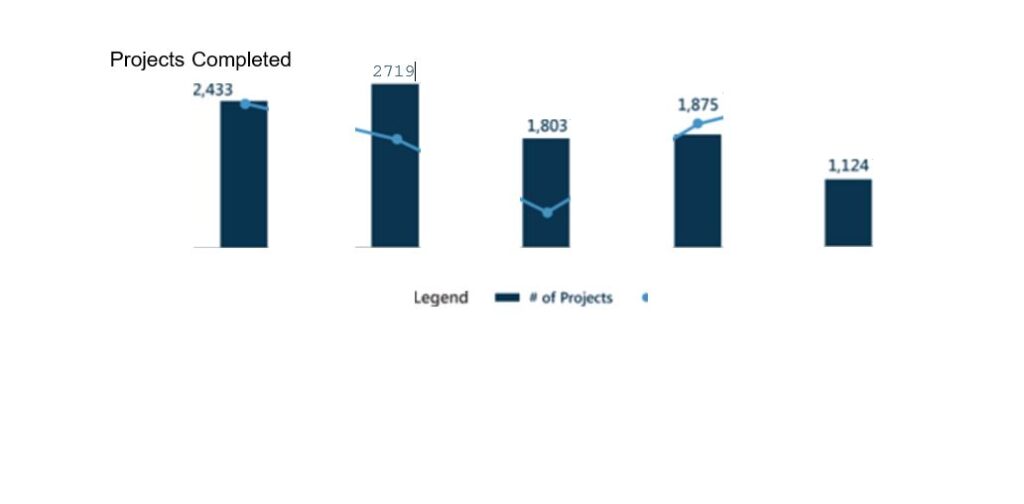The year ahead presents opportunities in the form of smaller projects, which were often neglected among the large-scale Middle East-size projects that the region is famous for, says Avin Gidwani, by way of offering hope in a scenario where the dearth of new project contract awards in 2020 will result in a significant shortfall of available work for HVAC businesses in 2021
Most HVAC companies sailed through 2020, thanks to the momentum of ongoing work. However, as that construction cycle concludes, the dearth of new project contract awards in 2020 will result in a significant shortfall of available work for HVAC businesses in 2021.

Avin Gidwani
There is no sugar coating this pill. Urban construction contract awards are down this year by around 40% versus Q1 2020, which was down around 25% from 2019. The new GCC region construction market is smaller, and even as new projects are awarded, leading to better overall performance than 2020, the market will probably continue to shrink this year from an HVAC perspective. Saudi Arabia’s giga-projects are on the horizon, but they won’t necessarily help salvage 2021. The projects in the Kingdom are ambitious and exciting, but they are in untested waters. The waves of social, legal and geopolitical change sweeping through Saudi Arabia in a post-covid world need to settle before businesses can truly determine how to navigate the new opportunities.
A year for small projects
The year ahead presents opportunities in the form of smaller projects, which were often neglected among the large-scale Middle East-size projects that the region is famous for. The region’s villas sector, for instance, needs an HVAC uplift that can come with the industry focusing on how to provide cost-effective and practical solutions that serve the end-user. The same can be said of mid-scale commercial and industrial units that generally ran below the radar.
There continue to be thousands of individual villa projects that are being constructed in the UAE alone. Indeed, about 2,500 individual villas across the UAE were added to the BNC project intelligence database over the last three months, with many more to follow, as many more people look for residences with more space, access to nature and community living. Many of these projects are neglected by suppliers, and smaller consultancy firms lack the expertise to offer end-users the advice they require to make educated buying decisions. Add to this that smaller contractors lack the skill to properly implement the HVAC solutions that sell well on paper.
Focusing on small projects would probably have been a questionable business strategy a year ago, because they wouldn’t have been as lucrative or exciting, but as COVID rapidly matured the market, reconfiguring to service small projects, the sector is one of the best bets many businesses can make.
Supply and install
There is a growing need for specialist contractors or suppliers that install their products to provide end-users with the benefits these products were designed for. The structured model of construction designed for large-scale projects has kept most contractors and suppliers away from end-users, who often do not experience the energy-saving, the cleaner air, the faster cooling, the silent operation, the lifestyle automation and the longer service life that engineers spend countless hours designing, testing, certifying, specifying, selling and installing.
The gap between the end-user and the supplier is to blame and must be bridged so that consultants can build their reputation for sound engineering advice, contractors can grow their business through installations that exceed expectations, and suppliers can build their brands with their ultimate customers, who start benefiting from the engineering and features that differentiate their products.
Indeed, in an economy of mushrooming specialist contractors, businesses must use the opportunity to create a network of installation experts for their specific products.
If it ain’t broke…
The norm in thinking ought to be, Build a business to maintain “it”, so that you are prepared to refurbish it or replace it when it does break. Many businesses still sell their products without a service contract – a lucrative source of running revenue and a powerful way to build a deeper connection to the marketplace for a sustainable long-term business. Maintenance contracts, when available, are often over-priced, poorly structured and often poorly supported, as they are a side-act. Evolving from a product business to a service business can seem daunting and may appear to be unviable or inapplicable, but looking more deeply at how products are used by end-customers and how long they last can lead to the creation of a sustainable new profit centre in the years ahead.
When the market is quiet…
Most businesses in construction see the developer, consultant or contractor as their customer. They ignore the end-user of their products, and while it did not matter too much in the years gone by, in today’s market, they can gain tremendously by educating not just the chain of buyers and influencers in the construction cycle but also the end-user.
Mass market education requires different strategies from the technical sales cycle that HVAC businesses generally participate in, but the dividends of an educated end-customer have been underestimated for too long, and in a quiet marketplace, the voice of the end customer will be the loudest in the room.
The next wave
The next wave of construction will come, but it is unlikely to be seen by HVAC businesses till the middle of 2022, at the very earliest. The mega- and giga-projects being put on the drawing board are inspired and driven by visions of a futuristic world, and HVAC players must use the market lull of these early 2020s to cut costs, streamline supply chains, improve service infrastructure, technically enhance their products, build case-studies that demonstrate true efficacy and educate the market at large, which has fundamentally and irreversibly changed.



The writer is Chief Executive Officer, Industry Networks (FZC). He may be contacted at agidwani@bncnetwork.net
Copyright © 2006-2025 - CPI Industry. All rights reserved.